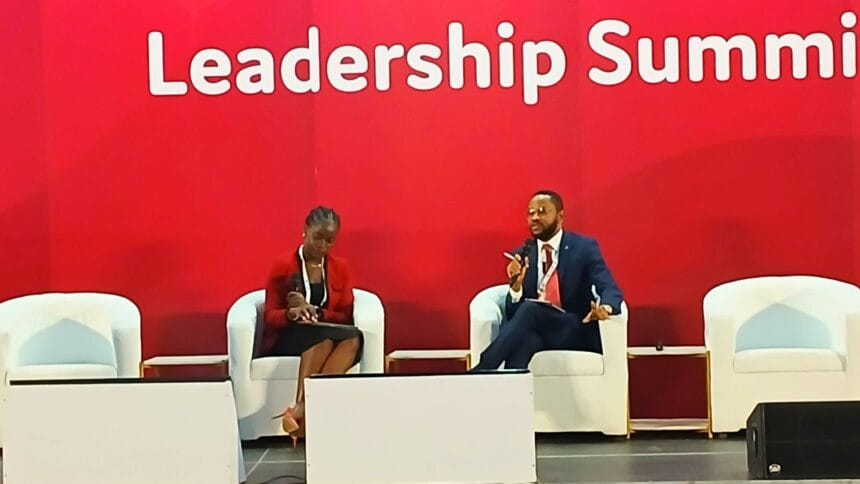… charges FG to foster international partnerships to accelerate technology transfer, renewable energy deployment
Oredola Adeola
Samuel Nwanze, Executive Director and Chief Financial Officer of Heirs Energies Limited has estimated that Nigeria will require approximately $135 billion to fully decarbonize its power sector and achieve net-zero emissions by 2060.
The ambitious target, which he described as essential for advancing Nigeria’s energy transition plan and aligning with global climate goals, entails not only expanding the country’s renewable energy capacity but also improving grid infrastructure and scaling up off-grid energy solutions to ensure energy access and sustainability.
The Heirs Energies CFO made this known during a firechat session, theme: Investing in Tomorrow: Navigating the $360 Billion Energy Transition at the Nigeria Energy Leadership Summit in Lagos on Wednesday.
He further recommended the adoption of innovative financing mechanisms, including green bonds and blended finance, to accelerate the development of solar and other renewable energy projects in Nigeria.
He emphasized the role of tailored financial solutions in addressing project-specific risks and attracting investments.
he said.
Nwanze further underscored the critical role of financial institutions in closing the funding gap for Nigeria’s Energy Transition Plan (ETP).
“There is no one-size-fits-all financing solution for renewable energy projects.
“Our model at Heir Energies focuses on assessing investors’ risks, structuring financing to mitigate those risks, and tailoring approaches to suit the specific needs of each project,” Nwanze stated.
“At Heirs Energies, we usually assess our project risks and structure our finances in ways that mitigate those risks.
“One of those structured finances is the green bond and Nigeria was the first African country to issue this facility for investment in green energy,” he said.
Nwanze further stressed the need for an integrated approach within the renewable energy value chain, calling for better collaboration between key agencies such as the Nigerian Content Development and Monitoring Board (NCDMB), the Rural Electrification Agency (REA), and other agencies.
“Bringing all players together is crucial for effective implementation and monitoring. We must have strong implementation agencies to ensure government policies are properly executed and deliver the intended impact.”
“Quality needs to be ensured cohesively across the renewable energy sector. We must align all players within the value chain to achieve targeted results.
“An effective implementation and monitoring framework is critical because, without it, most government policies will not deliver the desired impact,” he remarked.
He also highlighted the importance of local content in renewable energy development.
“The NCDMB has made tremendous achievements in oil and gas, and these can be replicated in the renewable sector.
“Through capacity building, local manufacturing, and research & development, the board’s expertise and the Nigeria Local Content Act can be instrumental in developing a sustainable renewable energy sector,” he said.
Nwanze outlined several key areas requiring investment to achieve Nigeria’s energy transition goals, including large-scale renewable energy projects, off-grid and mini-grid solutions for rural areas, and decarbonizing the power sector.
He noted that meeting clean cooking needs alone would require $7.5 billion by 2030.
“The ETP focuses on power, transportation, industrial decarbonization, and clean cooking solutions. Decarbonizing the power sector alone will need about $135 billion by 2060 to expand renewable energy capacity, improve grid infrastructure, and scale off-grid solutions.
There are significant opportunities to diversify the energy mix, reduce fossil fuel dependency, and enhance electricity access,” Nwanze said.
He called for stronger government support, including financial incentives, tax breaks, and subsidies, to drive renewable energy adoption.
He also emphasized the need for clear policy frameworks to provide certainty around tariffs and demand, thereby attracting long-term investments.
“Increasing grid stability, expanding transmission infrastructure, and adopting energy storage solutions are essential for integrating renewable energy into the national grid.
“The government must also foster international partnerships to accelerate technology transfer and renewable energy deployment,” Nwanze added.
The ED and CFO of Heirs Energies further reaffirmed the company’s commitment to advancing Nigeria’s energy transition.
“At Heirs Energies, we are dedicated to playing a leading role in Nigeria’s energy transition. Together, we can shape a sustainable energy future that benefits all Nigerians,” he said.




